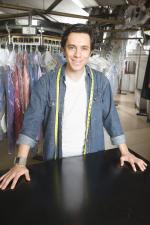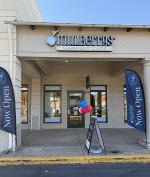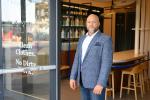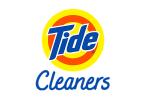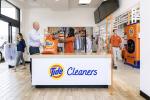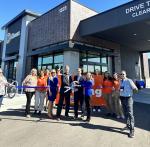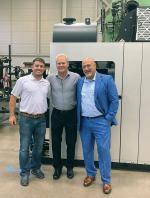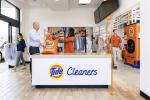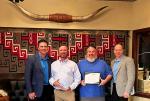CHICAGO — While there’s no substitute for experience, those who are just entering the drycleaning industry can bring with them new approaches to the business without being locked into “traditional” ways of thinking. If they avail themselves of the wisdom of those who have done the job before, however, this can be a mixture that brings success.
First Steps
Patrick Elverum is the CEO of Turns, a company that recently purchased a Tide Cleaners franchise of drycleaning and laundromat locations in the Dallas area.
While Elverum is new to the drycleaning space, it’s not his first outing into the business world. The U.S. Naval Academy graduate served as a nuclear engineer aboard a submarine, built schools as an architect, ran a software company for more than a decade, and spent a year as a roofer and another as a banker.
These experiences, he says, make him appreciate the drycleaning industry.
“When I looked at the business, I liked the fact that it was a place where, as a leader, I get to work as close to the end product and customer as possible,” he says. “With a background in nuclear power and technology, AI and then banking. I had a very keen appreciation for simplicity. And while I know that dry cleaning isn’t the simplest business out there, it offered a straightforwardness that was very attractive to me. You learn the playbook, perfect the playbook, and then execute the playbook with violence and vigor.”
David Nelson, with his father, Brian, recently bought their own Tide franchise and has opened two new stores in Boise, Idaho. For Nelson, who graduated from business school with triple majors in economics, marketing and business operations, the idea of franchising was attractive to him but he needed to find the right business type.
“We explored a couple of avenues on different franchises, and ultimately decided we didn’t want to go into a food franchise,” he says. “There are awesome benefits there, but some real downsides, as well.”
The answer for Nelson came from a friend who lived in Salt Lake City.
“He said, ‘Hey, I found the perfect franchise for you,’” Nelson recalls. “So, I went down to his house for the weekend and we picked up his business and church clothes from the dry cleaner on Saturday at about 2 a.m. from the kiosk they had. I thought, ‘This is really cool.’ We reached out to the owners of that particular franchise and chatted with him about it. I then reached out to Tide and pursued it.”
Time and Training
When Nelson decided to venture into the drycleaning business, he knew that he should learn the ropes before going all in.
“I worked in that Utah store for about six months before we signed a franchise agreement,” he says. “After that, we took a bit of a hiatus while we were working to locate a site and get ourselves situated with the franchise. Once we had that taken care of, I went back and worked for them as an assistant manager there for another nine months or so. All told, I had about a year and a half worth of training — working in the front, working in the back and on the management side of things — before I got my own location.”
While Elverum’s training wasn’t as extensive, he was glad to be able to witness the operation before taking control.
“The timing of this deal took a while to get done, so from May through October, I got to be an observer and a student,” he says. “I was able to go both in the back of the plant and in the front of the plant as somebody who wasn’t a leader — who wasn’t responsible for making any decisions — and got to ask any question I wanted. I was able to learn the basics of garment care and inventory flow. And then I was also able to identify some problems in the business before I owned those problems.”
It was here that Elverum learned to appreciate the expertise of the people working in what would eventually become his stores.
“We’re really blessed in that a lot of these folks are very proud of the work that they do, and they’ve done it for decades,” he says. “We had a GM who spent a lot of time with me, and Tide also sent down some trainers. I got to put hands on the equipment and do each position, but I’d be grossly lying if I said I became an expert. I was able to ask an obscene amount of basic and stupid questions and had a very patient and graceful staff willing to answer them.”
Come back Tuesday for Part 2 of this series, where we’ll explore the challenges new cleaners can face, and ways they can keep ahead of the competition.
Have a question or comment? E-mail our editor Dave Davis at [email protected].




